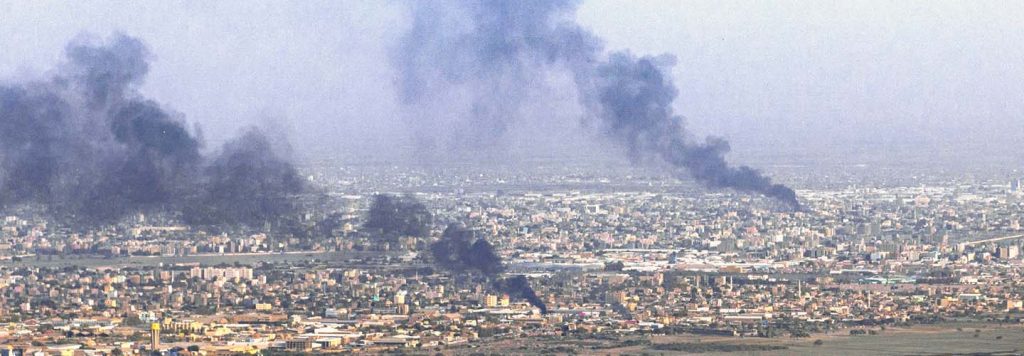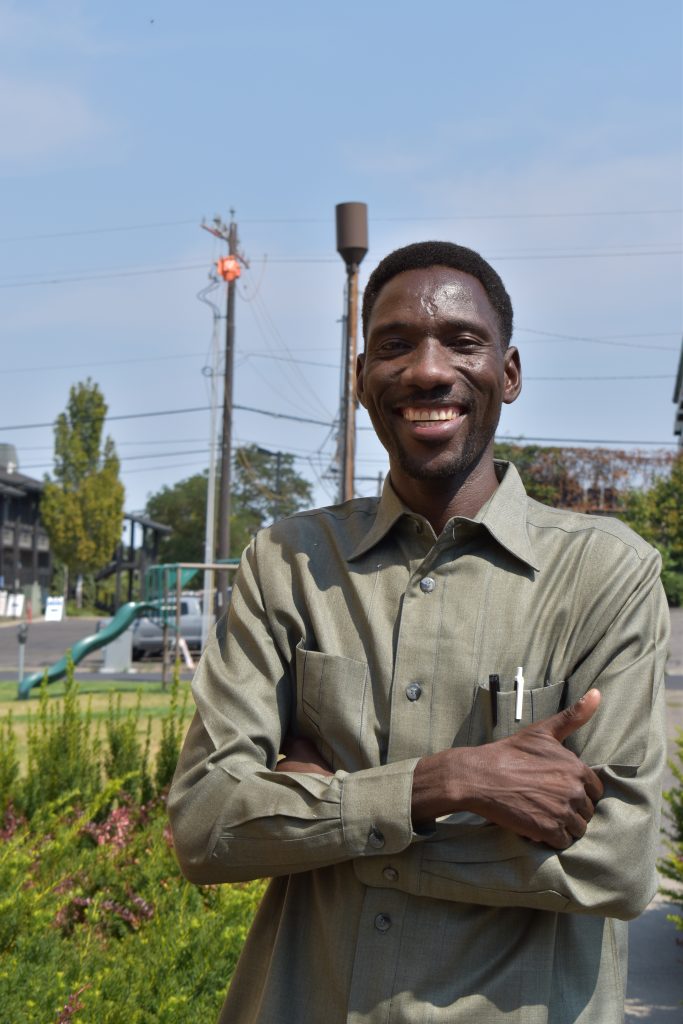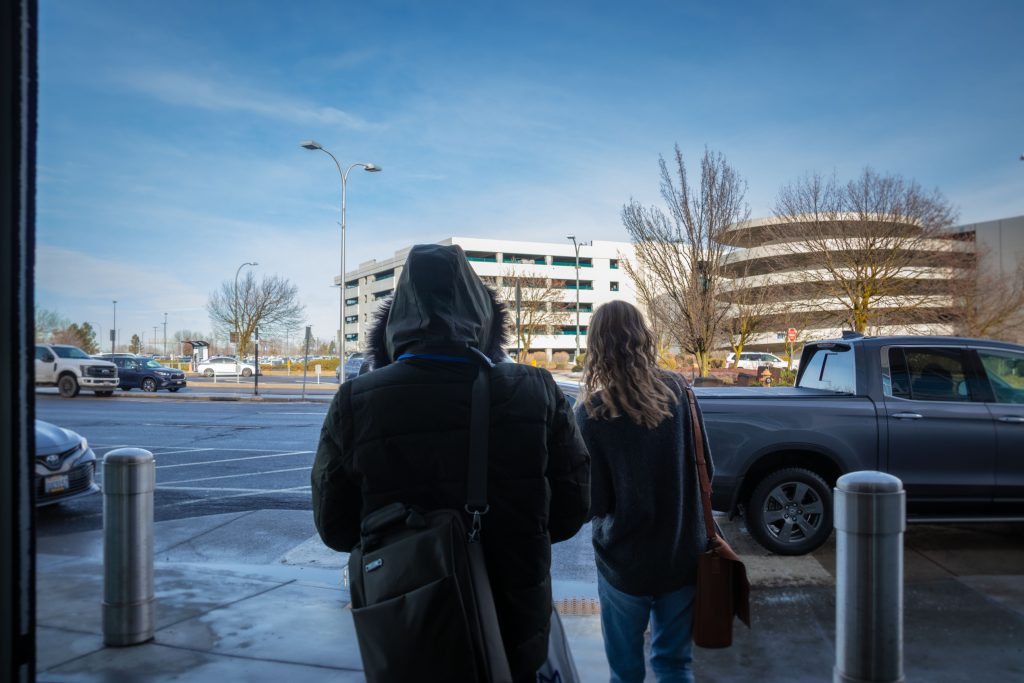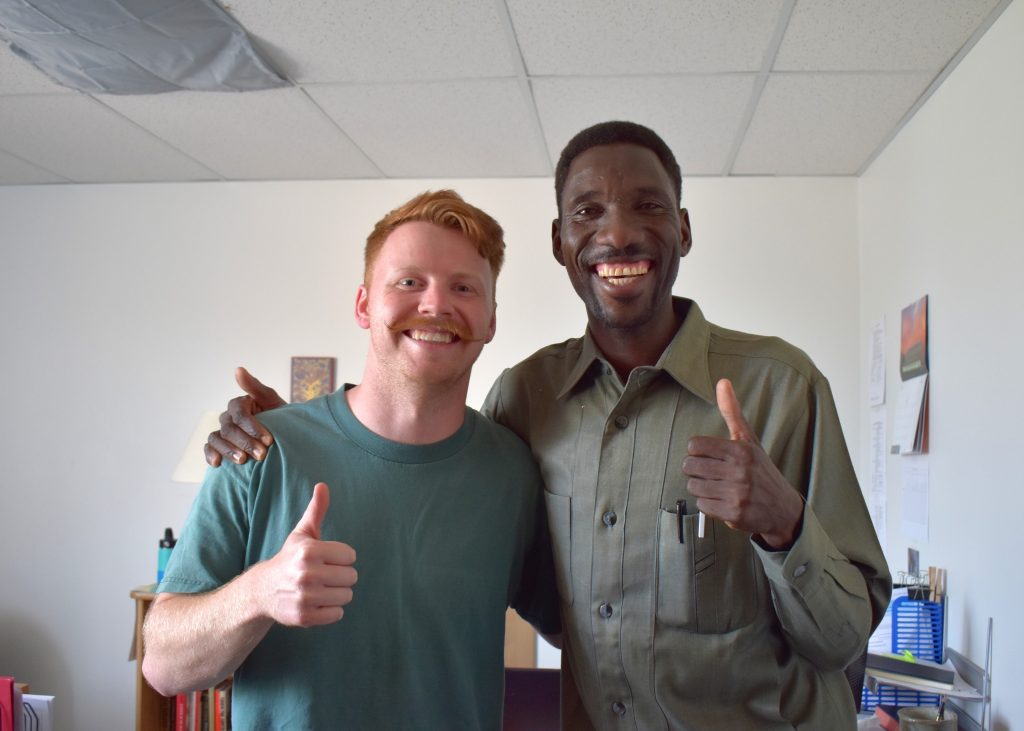Editor’s note: For years, militias in Sudan have targeted the Masalit people, an indigenous, farming tribe. 2.2 million people have fled Sudan since the most recent war began in 2023, and approximately 183,000 people are displaced within the Darfur region alone. Many have been shot, buried alive and starved to death… Ahmat, a survivor, shares his experiences of escaping the massacre in his homeland in his own words.
March 2003, 9:29am
They attacked us in the morning. Before the people get out from sleep. So, when we are sleeping, we get people – just shooting the people. We hear the guns. Where are they coming from?
It’s just shooting the people randomly, everyone – child, elderly, women – killed. From my village about 70 persons killed in just one day. From the morning to 2pm. Everyone.
It’s so hard to me.
So we have a situation. To just run away from the militia to the west side. They were chasing us and killing the people.
More villages… I assume more than 30 villages they attacked in one time. You don’t know where you are going. Maybe you cross to another village – you may be killed…You just cross there to go.

Soon after that, the sun set
After it went down in the evening, we went back to see who was killed. We tried to collect the people who were killed. They were laying on the ground. In two or three hours, we collected the people who were killed in that time. We had no transportation to collect the people – just getting them on our shoulders.
Seventy people were killed. And what were we going to do? We need to bury those people.
How we bury them? We could not bury them separately. It is too much time. Maybe we could be attacked another time. We put them in one cemetery – one grave. Yes, 70 persons. Some people buried and some people just putting the person [down].
Seventy people took more than two hours to need to bury. Up to night.
And then we left our village at night. We go to the military base…we went there. Maybe they protect us.
The next day
In the morning also, they came to attack the military base. The military base and the army say, “Don’t stay here. This is unsafe for us. How we can protect you? Try to go to the state.”
They inspecting people. Why are you coming? What’s your tribe you belong to? Five minutes and you were killed. I am from Masalit.

I don’t know. Sometimes they kill the tribes randomly and sometimes they are, “Which tribe are you from?” – I am from the tribe Masalit – “You will be killed here.”
I don’t know the reason.
We need to enter [Al Geneina]. We walking at night. From the morning we haven’t eat – no one eat – children crying, they are hungry. They need to eat and no water. Such a difficult situation. To the best of us.
Burn their houses and killing them!
“What’s wrong?” The government said. “These people support the rebels.” And we have no rebels in our village!
They say you have rebels in your village. No! Come and see! If you find one person who is a rebel here…we have no guns. No such people.
Why are you killing us?
Since 2003, I have stayed in Al Geneina with my mother, and I don’t know where my brothers went. And my father – he is elder – now he has passed away. After Al Geneina, it becomes unsafe. We were IDPs (internally displaced people) in Al Geneina…[we had left] to other side of Sudan.
In Al Geneina, we stayed from 2003 to 2010
All the people come to Al Geneina. Al Geneina become too crowded. There were no resources – how you can work to live? There were no more chances to employ. Get your food from where? There’s no work.
And then, the armies prepared themselves to come to attack Al Geneina. Again.
They start to kill all the people in the camps…More than five times they attacked the refugees – the IDPs. Sometimes they attacked another camp and next time they attacked other camp… 60 person, 50 person…we always going to bury the people.
We said, “How we can escape in this case? It is better to leave the Sudan at all.”
And our mothers told us, “Don’t be afraid for us. We are the women. They are targeting the men more than the women. You try to cross the border and go to another country.”
I crossed the border to the Chad…crossed it in 2010. I have been there since 2010 to 2024 until I arrive here.

I arrive here June 12, at 2:12pm
I’m married. I have wife and two kids. I left them [in Chad]. The situation is so bad, she… When I arrive here, I was just thinking, “When I get to work and send money for them to eat?”
If you get the food to eat here, you just remember how about your kids. Did they get food today? Maybe they have no food.
After one week, I need to hear about my wife. How can I because there are no phones? So when I was searching on the Facebook, I found someone who knows us…I send him a message.
He went to my wife, give her the phone, I called her said, “How are you?”
“We are so fine…but…”
When she said ‘but’ I had to stop. “What’s wrong?”
“There is not enough to eat… You arrived there. You are safe, I am safe. So try to get the work. To eat. Because, if you stay the more time there and you don’t send the money for us – the following season is coming. There is no work.”
I receive my dollars for assistance. I sent it to them. Yes, I can eat, but allowance… I sent to them to eat. Now I feel some disparity because they have the food to eat, but in a long time, what’s going to happen to them?

Yesterday, I went to an interview about a job. I hope I get the job…when you love your job, you will make a positive result. And that’s going to impact people.
When I arrived here, I don’t know anything about this country – I was worried about it but, when I met World Relief they started to make my transition smooth.
Every Friday, I attend a workshop for discussion for any more things we will learn in our future. This is really so important for us because in America – if you want to live in America – first there are key things…how to manage your own business, how to manage your income or how to manage your own budget. That needs education.
All this information that World Relief started giving for us…all the staff we so appreciate.
All of them together are teaching us and giving information. I really appreciate for them. I express my gratitude for World Relief.
